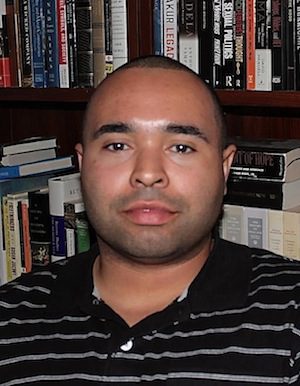History Faculty Member Receives NEH Fellowship

Christopher Cameron, assistant professor of history in the College of Liberal Arts & Sciences at UNC Charlotte, has received a National Endowment for the Humanities Fellowship with the Massachusetts Historical Society.
Cameron’s research fellowship extends from September 2013 through April 2014 and is focused on “Liberal Theology in Early America, 1630-1830.” Cameron’s research interests are America religious and intellectual history, African American religion, slavery and abolition, and colonial and revolutionary America.
With this fellowship, Cameron’s study, “Liberal Theology in Early America” will move beyond the standard description of American religious life to show how Arminians (those who believed humans could affect their spiritual state), Unitarians (those who denied the doctrine of Trinity), and other liberal Christians shaped American theology and religious practice. In this study, Cameron seeks to make Arminians, Deist, Unitarians, Universalist, and other liberal Christians as prominent in our histories of early American religious thought as they were in its reality.
Cameron earned his doctorate in 2010 and his master’s degree in 2008, both from the University of North Carolina at Chapel Hill.
His first book is titled To Plead Our Own Cause: African Americans in Massachusetts and the Making of the Antislavery Movement (forthcoming 2014, Kent State University Press.) This study explores the relationship between Puritan theology and the rise of black abolitionism and argues that African Americans were central to the development of the antislavery movement in America. He is currently working on the liberal theology monograph and another book examining African American freethinkers from the mid-19th century to the present.
Founded in 1791, the Massachusetts Historical Society, an independent research library, is an invaluable resource for American history, life, and culture. Its extraordinary collections tell the story of America through millions of rare and unique documents, artifacts, and irreplaceable national treasures. As the nation’s first historical society, the society strives to enhance the understanding of our nation’s past and its connection to the present, demonstrating that history is not just a series of events that happened to individuals long ago but is integral to the fabric of our daily lives.
The National Endowment for the Humanities (NEH) is an independent federal agency created in 1965. It is one of the largest funders of humanities programs in the United States. Because democracy demands wisdom, NEH serves and strengthens our republic by promoting excellence in the humanities and conveying the lessons of history to all Americans. The Endowment accomplishes this mission by awarding grants for top-rated proposals examined by panels of independent, external reviewers. NEH grants typically go to cultural institutions, such as museums, archives, libraries, colleges, universities, public television, and radio stations, and to individual scholars.
Words by Kendall Cook